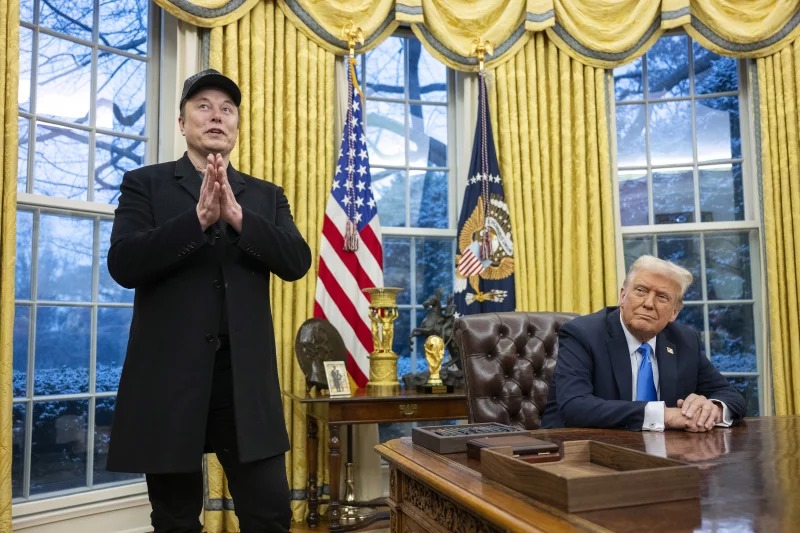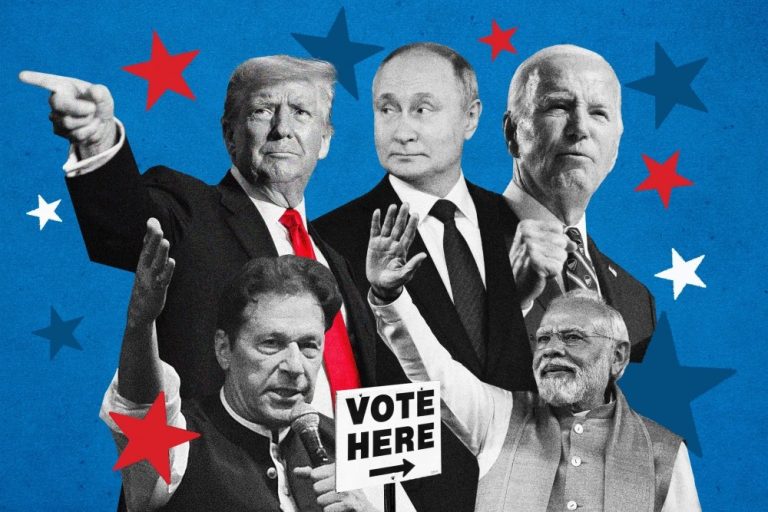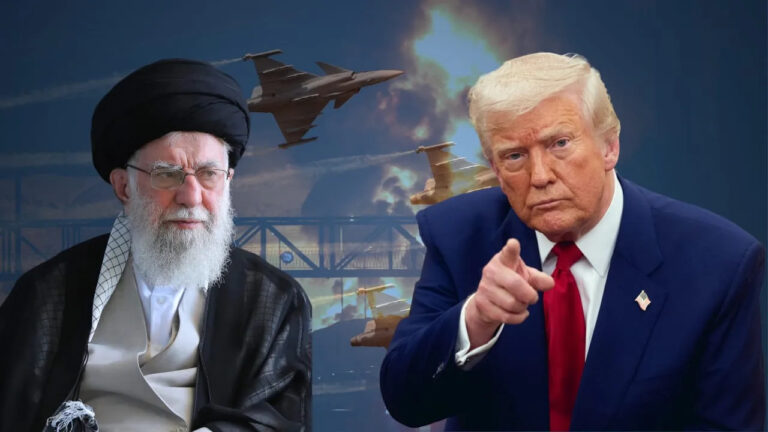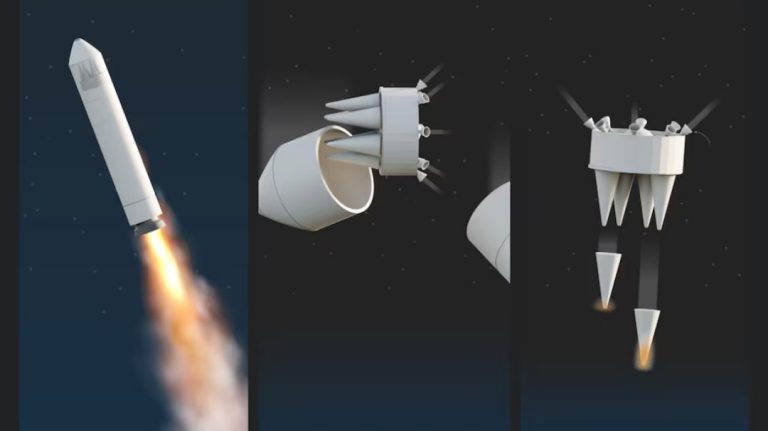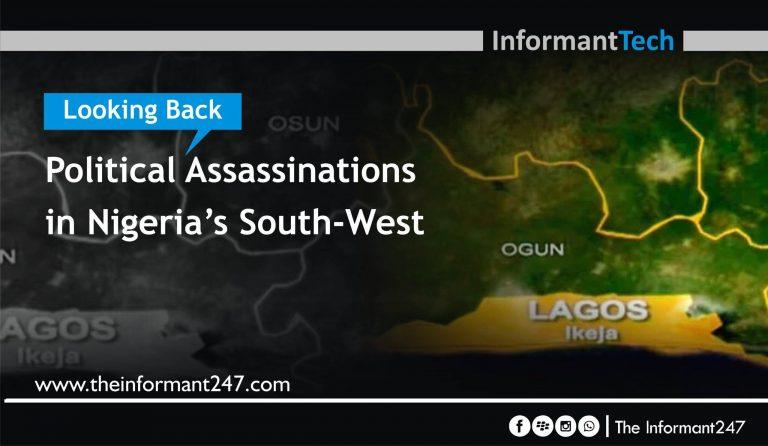Five things to know about Elon Musk, Trump’s ‘blue-eyed boy’
It’s no surprise that wealthy business moguls influence politics, but Elon Musk’s sheer economic power, control over X (formerly Twitter), and close ties to US President Donald Trump give him an outsized role in shaping America’s policies—both at home and abroad. His influence extends far beyond the boardroom, making him a key player in the intersection of business, technology, and governance.
Elon Musk’s endorsement of Trump, coupled with the latter’s historic return to the White House, has given him enormous leverage in the current US administration. So far, Musk has advocated for mass federal layoffs, gained access to classified intelligence, taken control of sensitive data belonging to millions of Americans, and most alarmingly, oversees the US payment treasury system.
Musk seems to have everything at his fingertips. Here are five key things to know about Trump’s ‘blue-eyed boy’.
Triple Citizenship
Born in 1971 in Pretoria, South Africa, Elon Musk holds South African, Canadian, and American citizenship. He acquired South African citizenship by birth through his father. Musk’s mother is Canadian, through whom he acquired Canadian citizenship. However, growing calls in Canada advocate for its revocation, citing his close ties to Donald Trump and actions perceived as contrary to Canadian interests. In 2002, Musk became a naturalised American citizen and currently resides in Brownsville, Texas.
Billionaire in Motion
Elon Musk’s net worth continues to fluctuate but remains among the highest globally, with estimates previously placing it at over $400 billion, peaking at $447 billion. However, as of February 2025, his net worth is estimated at approximately $343 billion, according to the Bloomberg Billionaires Index. This decline is primarily attributed to a sharp decrease in Tesla’s stock value, which has fallen by 35 per cent in the past two months, leading to a reduction of over $100 billion in Musk’s wealth. Despite this downturn, Musk’s financial influence remains substantial, with his wealth surpassing the combined GDP of numerous countries. His holdings in companies like SpaceX and Tesla continue to underscore his dominance in the tech and space industries.
Emperor of Innovation
The United States is home to many of Elon Musk’s businesses, through which he drives innovation and redefines human potential. An entrepreneur at heart, Musk chairs and funds several of the world’s leading tech companies, with a particular focus on Tesla, SpaceX, The Boring Company, Neuralink, xAI, and X (formerly Twitter). Tesla, the electric vehicle manufacturer, where Musk became an early investor in 2004 and later CEO in 2008, continues to revolutionise the automobile industry with high-performance electric cars and a vision for a sustainable future.
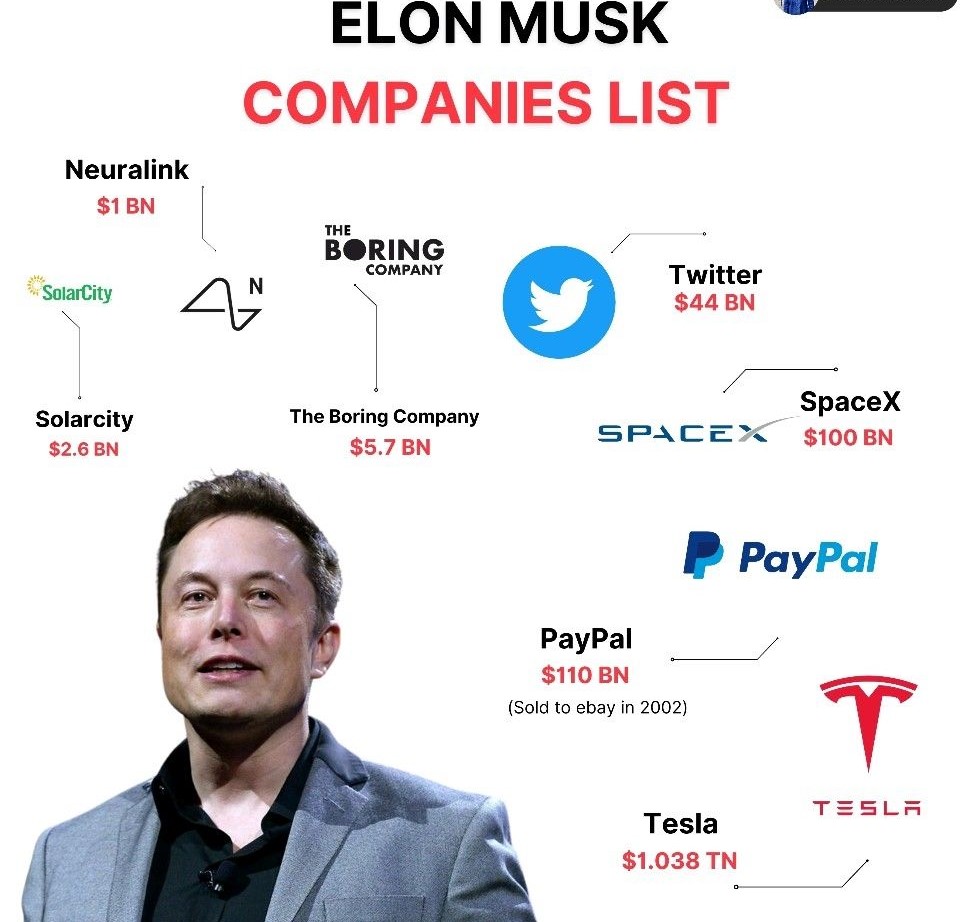
SpaceX (Space Exploration Technologies), founded by Musk in 2002, has achieved remarkable breakthroughs, including launching reusable rockets and advancing commercial space travel. Today, SpaceX remains the world’s most valuable private aerospace company, with its valuation soaring to approximately $350 billion as of 2025, driven largely by the rapid expansion of its Starlink broadband network and continued dominance in commercial space travel. The Boring Company, launched in 2016, aims to revolutionise urban transportation by developing high-speed tunnel networks to ease congestion and improve mobility.
In addition to his ventures in transportation and space, Elon Musk is also making waves in the world of artificial intelligence. In 2016, he co-founded Neuralink, a neurotechnology startup focused on developing implantable brain-computer interfaces. In 2023, he launched xAI, a company dedicated to pushing the frontiers of AI research and development. Musk’s acquisition of Twitter—now rebranded—X remains one of his most contentious endeavours. In 2022, he purchased the social media platform for $44 billion, aiming to champion his vision of free speech. However, his approach has sparked ongoing controversies among Americans and X users alike.
DOGE’s Shadow Chair
Established in 2025, the Department of Government Efficiency (DOGE) was created to streamline the US government by cutting bureaucratic red tape and overhauling federal agencies. While Elon Musk is not officially designated as its Chair, he plays a pivotal role as a key advisor to President Donald Trump, shaping DOGE’s policies and direction. Under DOGE’s aggressive cost-cutting measures, the agency has already enacted sweeping reforms. One of its most controversial moves has been the effective suspension of the US Agency for International Development (USAID). Though USAID has not been legally dissolved, the Trump administration ordered a 90-day halt on all foreign aid, leading to mass contract terminations, staff recalls, and the closure of its Washington, D.C., headquarters. Musk’s deep involvement in DOGE has fueled debate over his unofficial but undeniable power, as the department drives a radical shift toward a tech-driven, efficiency-focused federal system.
Rising Force in Global Politics
Through X, Elon Musk wields one of the most powerful digital platforms, allowing him to amplify his voice on political matters both within the United States and across the globe. Musk prides himself as a champion of efficiency, often advocating for the reduction of government bureaucracy and the use of technology to improve governance. However, his approach has drawn significant pushback from both Americans and Europeans, with critics arguing that his policies often undermine rather than uphold democratic ideals.
Musk has faced criticism from European political elites for his open support of far-right parties across the continent, as well as allegations of meddling in elections. His stance on free speech and content moderation policies on X has also placed him at odds with European regulators, particularly over issues of misinformation and extremist content.
In Africa, Musk’s direct intervention in political affairs has stirred controversy. His calls for sanctions on South Africa’s Economic Freedom Fighters (EFF) leader, Julius Malema, triggered a sharp rebuke from the opposition figure. This move further intensified debates over Musk’s growing influence in geopolitics and whether his tech empire is overstepping its bounds into state affairs.
The Next Act
Elon Musk is steadily positioning himself as a formidable force in both domestic and global politics. His growing influence spanning technology, finance, and governance suggests that he could become an even bigger power broker in shaping policies and political discourse. However, geopolitics remains unpredictable, and Musk’s financial and political dominance could either continue to soar or face significant disruption. His ties to Trump’s administration, involvement in AI, space, and defence, and influence over global communications through X make him a key player to watch. Whether he cements his status as a visionary statesman or a controversial disruptor, one thing is certain—Musk’s impact on the world is far from over.

